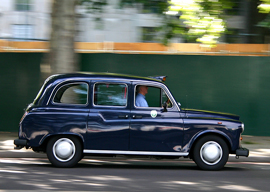
July 01, 2017

Source: Bigstock
In Africa, by contrast, they could start a business straight away, the only requirement being a little capital. They had already started: shops, hotels, cinemas, bars. They had needed no one’s permission; they simply bought premises or land upon which to build them and started their businesses as they saw fit. It was easy to square any interfering official, much easier than dealing with an “honest” bureaucracy. They hired whom they chose and paid them what the market would bear. They themselves could work as much or as little as they liked; the risk was entirely theirs, and if their enterprises failed, there was no one to rescue them and no one upon whom they could fall back other than their families (but they had chosen countries other than those of their descent). Paperwork was almost nonexistent and the government a long way off. In Africa, they felt they were free men in a way that they never would be free men in France.
Of course, with their greater freedom came greater risks. In Africa they could not count on proper medical care in the event of illness, for example. They would have to make their arrangements as best they could, which might not be well. But freedom is freedom, not safety or security. They told me that many of their acquaintances were returning to Africa to lead a freer life than they had, or could ever have, in France. I understood what they meant, even if the freedom they sought was possible only because of the capital they had accumulated in France, and that their path was not open to everyone. They were concerned with their own freedom, not that of everyone else, and had decided to seize it.
It seems to me true that we live in societies in which there are islands of license in an ocean of regulation. Perhaps that explains why there are nightclubs (themselves regulated, of course) called Manumission, and why our entertainments grow ever more coarse, vulgar, and extreme. They are the slave revolts de nos jours.